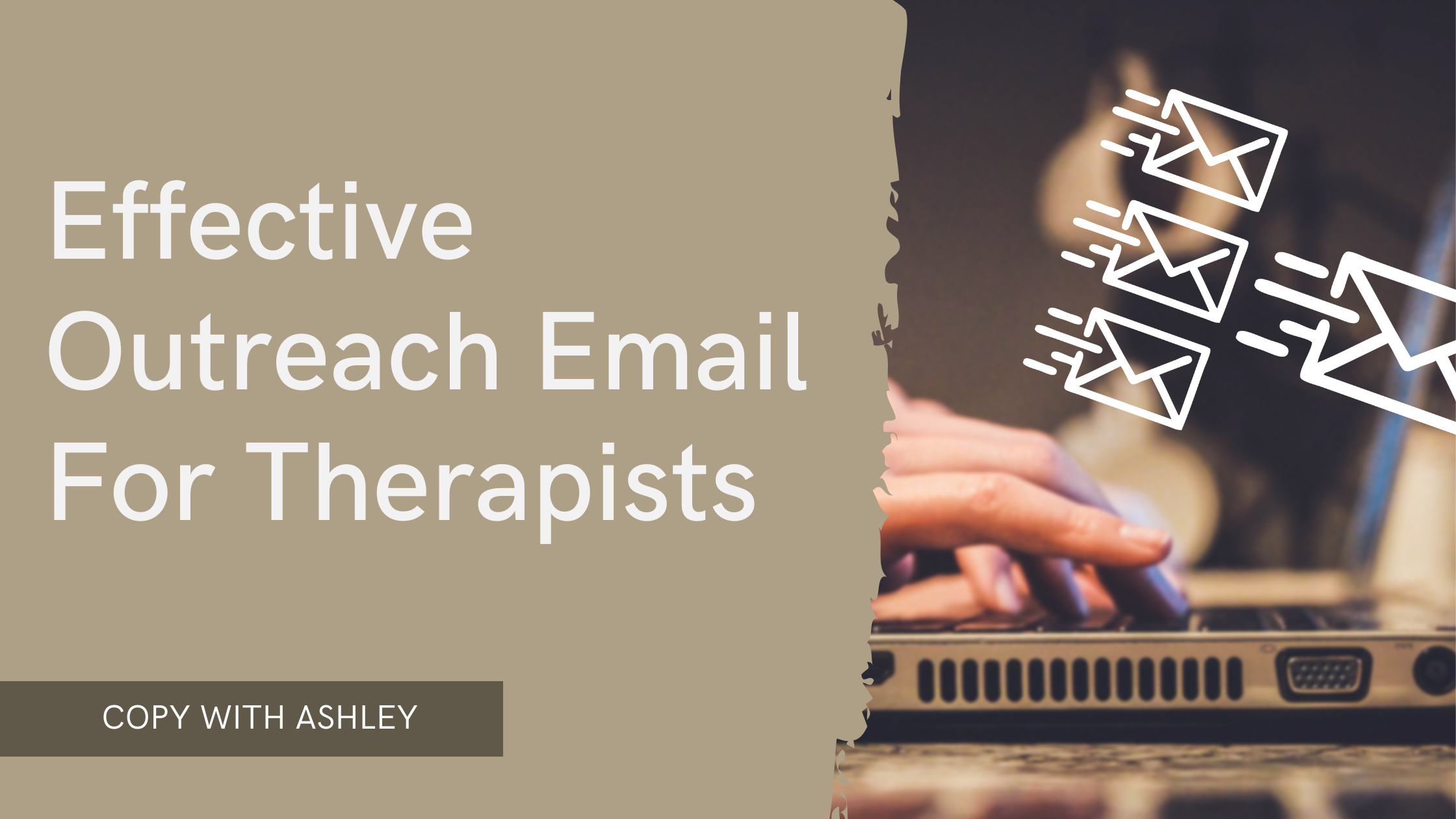Marketing Your Therapy Practice to Local Referral Sources: How to Write an Effective Outreach Email
Email is one of the most powerful tools you can use to market your therapy practice.
When someone opens your email, it’s like being invited into their virtual living room.
It’s personal. It’s direct. And it has one of the highest returns on investment (ROI) of any type of marketing – sometimes up to $36 for every $1 spent. [That’s BIG compared to a lot of other investments!]
And the best part? It’s not complicated.
Let’s break it down and look at how you can write an outreach email to local referral sources, like doctors, psychologists, school counselors, doulas, chiropractors, or pastors, that actually works.
First, let’s talk about what doesn’t work in email marketing.
Here’s a common mistake:
You write a long email introducing yourself, your credentials, the modalities you use, and how passionate you are about mental health.
It’s well-meaning. But it ends up sounding like a resume.
And while all of that may be true and impressive, it’s not what referral sources are looking for.
What they really want to know is simple:
Can they trust you with their clients or patients?
Are you easy to refer to?
Will you make their job easier?
Here’s an example of email marketing that does work:
Subject line: Supporting anxious teens – let’s connect?
Body:
Hi Dr. Johnson,
I’m a local therapist in town who works with anxious teens, especially those who are struggling to sleep, focus in class, or pull away from their friends.
I know you probably see this a lot in your practice. I’d love to be a resource for you if you’re ever looking for someone to refer out to.
Here’s a quick snapshot of what I offer:
I specialize in teen anxiety, using CBT and mindfulness
I offer both in-person and virtual sessions
I do parent check-ins and always collaborate with other providers (with consent)
I can usually get new clients in within 1–2 weeks
Let me know if you’d ever like to hop on a quick call or grab coffee. I’d be happy to learn more about your work too.
Warmly,
[Your name and contact info]
See how clear and simple that was?
It wasn’t a long list of certifications. It didn’t try to say everything.
It just made a real connection and showed how you could help. It gave a glimpse into what it’s like to work with you, and how easy you are to refer to.
Before you write a marketing outreach email for your therapy practice, answer these questions:
1. What’s the main problem you help with?
Use everyday words, not jargon. Think headaches, relationship stress, panic attacks, trouble focusing.
2. Who do you love working with?
Parents of anxious kids? New moms? Retired adults navigating grief?
3. What’s the referral source struggling with?
Think of how you can make their life easier. A pediatrician might want to stop doing therapy in the exam room. A teacher might want support for a student who’s always melting down.
4. What makes you easy to refer to?
Do you answer emails quickly? Offer consultations? Have short wait times?
Write your outreach email like you’re talking to one person.
Imagine you’re sitting across from them. Keep it human.
Use their name if you know it. Reference something local if you can, like a shared community or event.
Stay curious. Show that you care about their work too.
A simple structure you can follow:
Friendly hello + who you are
Let them know you’re a therapist in the area, and keep it warm and casual.
The kind of client you work with
Be specific. “I work with teens who feel overwhelmed and shut down.” Or “I help new moms who feel like they’ve lost themselves.”
How you can help their clients or patients
Include a few short bullets about your approach, availability, or process.
A soft call to action
Invite them to connect, hop on a quick call, or simply keep your info on hand.
Your signature
Include your name, credentials, website, and phone number.
Don’t forget the subject line.
It’s the first thing they see, and the reason they’ll decide to open (or ignore) your email.
Keep it short, clear, and relevant.
Here are a few examples.
Grief support for older adults – here if you ever need a referral
Local [Name of City] trauma therapist – happy to connect
Supporting postpartum moms – would love to be a resource
Follow up, but don’t be annoying.
If you don’t hear back, that’s okay. People are busy.
Wait 2–3 weeks, then send a short follow-up. Something like:
Hi Dr. Johnson,
Just wanted to follow up in case my note got buried. I’d love to connect and learn more about your work.
Let me know if you ever want to chat or collaborate.
Warmly,
[Your Name]
Still no response? Let it go. You can always try again next season.
You’re not selling yourself. You’re building trust and connections.
Remember… and of course you do, you’re a therapist after all, It’s about relationships.
You’re showing up in someone’s inbox to say, “Hey, I see the work you’re doing. I’d love to help support the people you care about.”
That kind of outreach? It goes a long way.
You’ve got this.
Need help?! I LOVE email marketing.
Schedule a free consult! Let’s chat.

